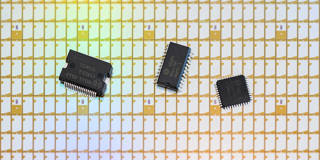In the early days of Silicon Valley, cutting-edge innovation was propelled by both the push of entrepreneurial ambition and the pull of big government. With the United States confronting new and unprecedented competitive pressures from abroad, it will need to revive this tradition, while avoiding unforced errors.
- Agathe Demarais, Backfire: How Sanctions Reshape the World Against U.S. Interests, Columbia University Press, 2022.
Jacob Helberg, The Wires of War: Technology and the Global Struggle for Power, Avid Reader Press, 2021.
Chris Miller, Chip War: The Fight for the World’s Most Critical Technology, Scribner, 2022.
Margaret O’Mara, The Code: Silicon Valley and the Remaking of America, Penguin Books, 2019.
CAMBRIDGE – “Potato chips, computer chips, what’s the difference?” a top economic adviser to US President George H.W. Bush supposedly asked in the early 1990s. “A hundred dollars of one or a hundred dollars of the other is still a hundred dollars.” At the time, Japanese firms were pushing their American competitors out of the market for memory chips, but free-market elites in Washington, DC, staunchly opposed any form of industrial policy to protect the domestic semiconductor industry. If foreign companies could produce chips at a lower price, they argued, American consumers would pocket the cost savings and direct their spending to other sectors.

Jacob Helberg, The Wires of War: Technology and the Global Struggle for Power, Avid Reader Press, 2021.
Chris Miller, Chip War: The Fight for the World’s Most Critical Technology, Scribner, 2022.
Margaret O’Mara, The Code: Silicon Valley and the Remaking of America, Penguin Books, 2019.
CAMBRIDGE – “Potato chips, computer chips, what’s the difference?” a top economic adviser to US President George H.W. Bush supposedly asked in the early 1990s. “A hundred dollars of one or a hundred dollars of the other is still a hundred dollars.” At the time, Japanese firms were pushing their American competitors out of the market for memory chips, but free-market elites in Washington, DC, staunchly opposed any form of industrial policy to protect the domestic semiconductor industry. If foreign companies could produce chips at a lower price, they argued, American consumers would pocket the cost savings and direct their spending to other sectors.